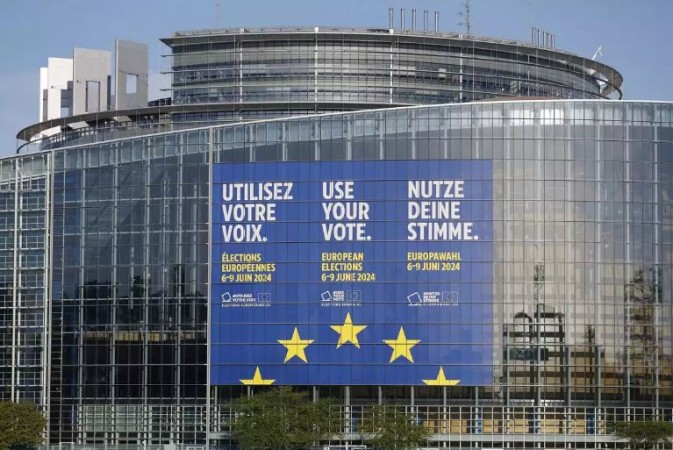
Brussels: Over the next four days, nearly 400 million European Union citizens will head to the polls to elect members of the European Parliament (MEPs), in one of the world's largest democratic exercises.
Far-right parties are seeking to expand their influence, buoyed by rising living costs and discontent among farmers, while issues such as the conflicts in Gaza and Ukraine weigh heavily on voters' minds.
One of the most significant questions is whether European Commission President Ursula von der Leyen will continue to lead the EU, facing stiff competition.
Election Details:
The European Parliament elections are held every five years across the 27-member bloc. This year marks the 10th parliamentary election since the first polls in 1979, and the first post-Brexit.
Voting will take place from June 6-9. Initial results will be announced on the evening of June 9, after all polling stations have closed in member states.
Voting Process:
The elections began on Thursday in the Netherlands and will conclude on Sunday in most other countries. Voting is conducted through direct universal suffrage in a single ballot.
The number of MEPs elected in each country depends on its population size, ranging from six for Malta, Luxembourg, and Cyprus to 96 for Germany. In 2019, 751 lawmakers were elected, but following the UK's departure from the EU, the number of MEPs was reduced to 705, with some seats redistributed to other member states.
Voter Demographics:
Some countries, including Belgium, Germany, Malta, and Austria, allow 16-year-olds to vote, while the minimum voting age is 17 in Greece and 18 in other member states. Candidates must typically be at least 18 years old, except in Italy and Greece, where the minimum age is 25.
Voter Turnout:
EU elections have historically seen varied turnout rates, with a notable increase in 2019 to 50.7%, up from 42.6% in 2014. Recent surveys suggest a heightened interest this year, with around 71% of Europeans expressing their likelihood to vote.
Main Issues:
The full-scale invasion of Ukraine by Russia is a major concern among voters, with defense and security being central campaign issues. At the national level, these issues rank prominently in nine countries.
Other significant issues include the economy, jobs, poverty, social exclusion, public health, climate change, and the future of Europe.
Role of EU Lawmakers:
The European Parliament is the only EU institution directly elected by European citizens. It acts as a counterbalance to the powerful European Commission, although it does not have the initiative to propose legislation.
Lawmakers vote on laws related to a wide range of topics, including climate, banking rules, agriculture, fisheries, security, and justice. They also vote on the EU budget, crucial for implementing European policies, such as aid to Ukraine.
Current Composition of the Parliament:
The center-right European People's Party (EPP) is the largest political group with 176 seats out of 705. President von der Leyen, from the EPP, hopes to retain her position.
The second-largest group is the center-left Progressive Alliance of Socialists and Democrats (S&D), with 139 seats, followed by the pro-business liberal and pro-European Renew Europe group with 102 seats, and a coalition of green and regionalist parties holding 72 seats.
Far-right Ambitions:
Two groups, the European Conservatives and Reformists (ECR) and Identity and Democracy (ID), both with far-right parties, are likely to become the third- and fourth-largest political groups. The extent of their collaboration and its impact on the EU's agenda, particularly regarding support for Ukraine against Russia, remains uncertain.
Post-Election Procedures:
Following the elections, MEPs will elect their president at the first plenary session from July 16-19. Subsequently, likely in September, they will nominate the president of the European Commission after weeks of negotiations.
In 2019, von der Leyen secured a narrow majority to become the first female president of the Commission. The parliament will also hold hearings for EU commissioners before approving them in a single vote.
Future Prospects:
Von der Leyen is expected to seek another term but must secure sufficient support. Her openness to working with the far right, depending on the election outcome, has caused controversy among lawmakers.
European Parliament Election Underway as Estonians Cast First Ballots
Big Decisions Ahead: What to Expect from the European Parliament Election
India, Egypt Lead in Russian Fuel Oil and VGO Imports in April, Here's Why....